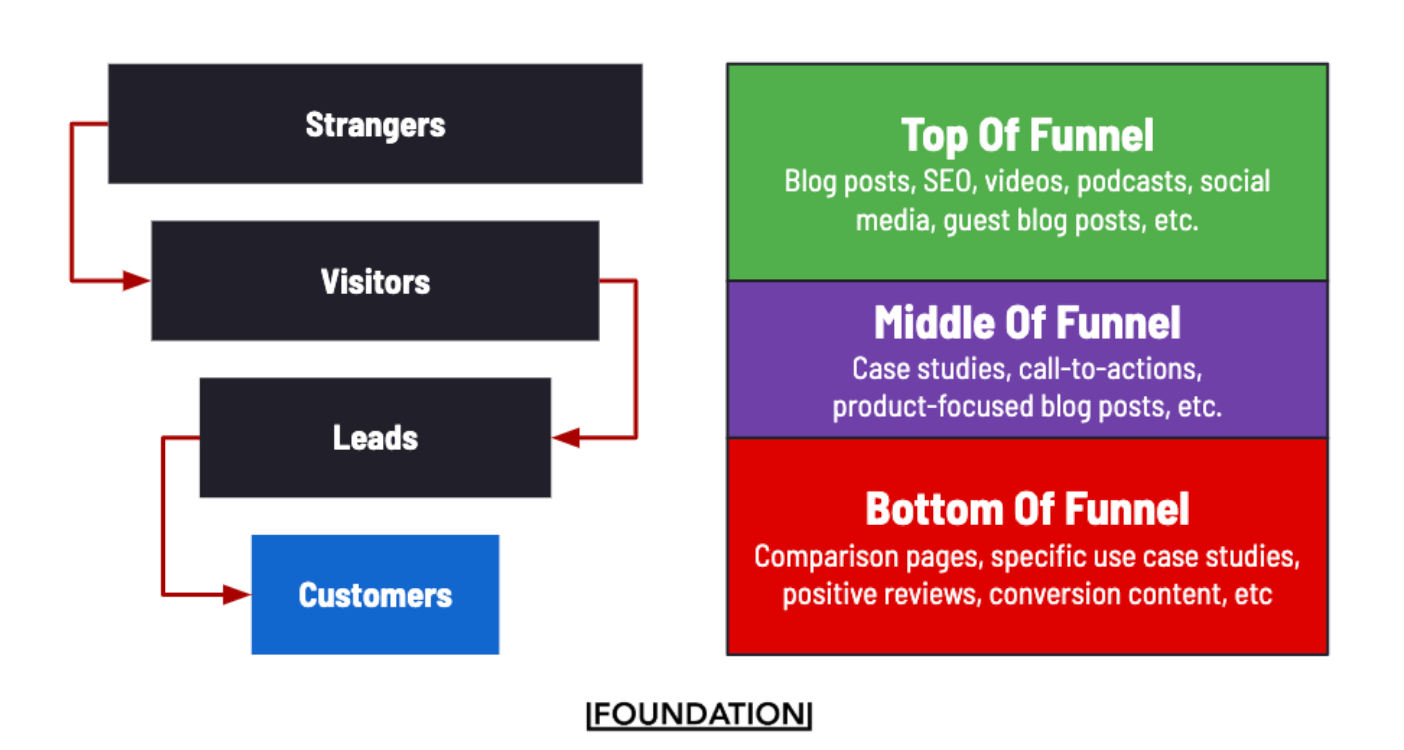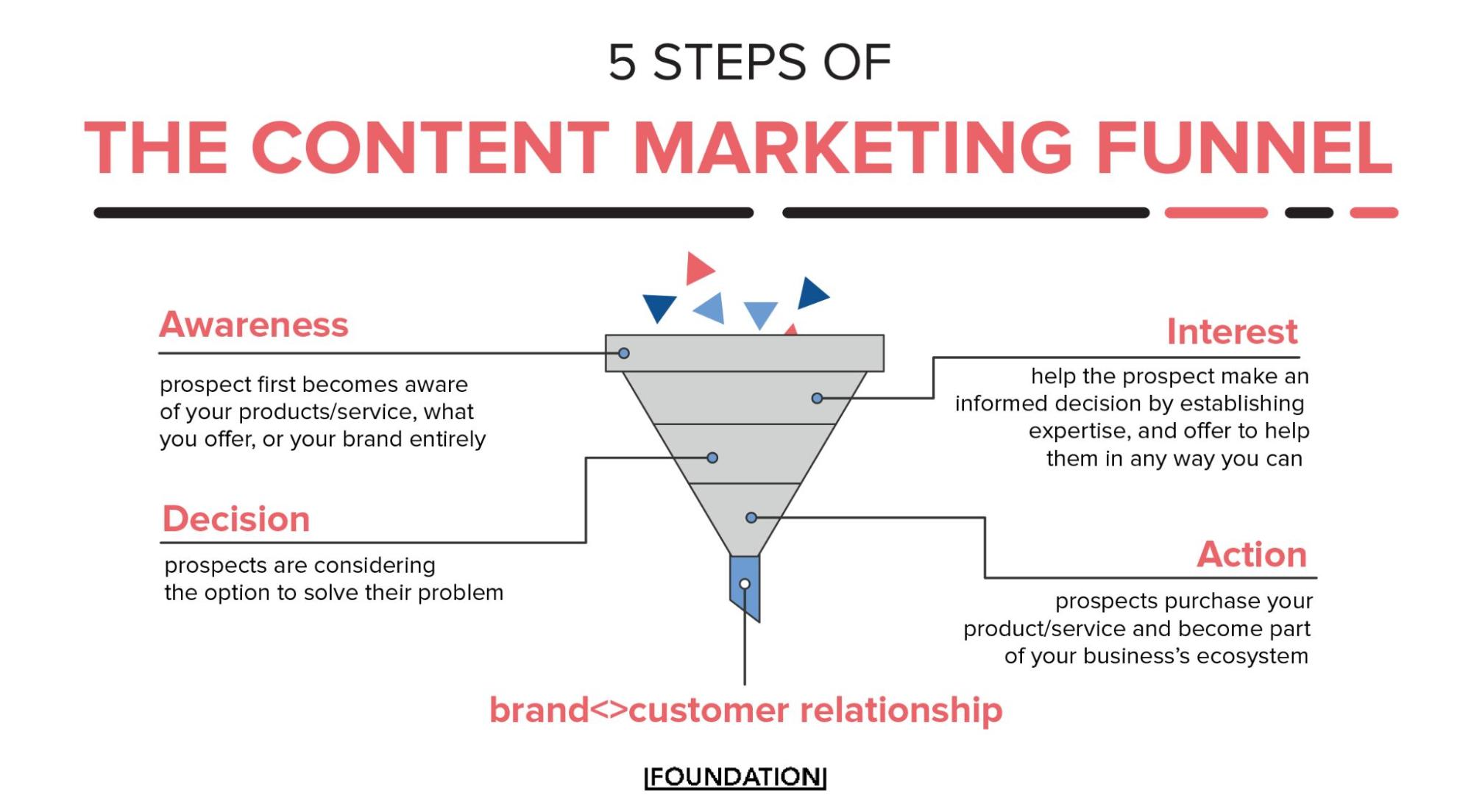Article's Content
What Is Inbound Marketing?

Inbound marketing is a methodology where businesses use valuable content to attract new customers without relying on interruption-based ads or cold email outreach. Businesses create content that answers questions their audience is already asking, then use free resources and forms to convert website visitors into leads. By leveraging inbound marketing, businesses can build trust and credibility with their audience, which ultimately leads to increased conversions and customer loyalty.
Some of the most common channels for inbound marketing strategies are social media, Google (search engine optimization), and online communities like Facebook Groups, Reddit, X, Linkedin and Quora. As a social media agency for B2B, we tend to support the development of content that runs the full spectrum in this area.
Since the entire methodology is based on attracting people that are actively looking for the solutions you’re offering, the quality of leads are typically high.
Contrast this technique with outbound or traditional marketing, which is focused on pushing a message to the widest possible audience, regardless of need for the company’s offering.
Outbound marketing strategies (not to be confused with account-based marketing) typically target large, cold audiences at a lower cost with the hope of reaching a handful of interested people.
Why Use Inbound Marketing?
Inbound marketing is a highly effective approach for attracting qualified leads and converting them into customers. Unlike traditional outbound marketing tactics, such as TV commercials or cold calls, inbound marketing allows businesses to target a specific audience who are already interested in their products or services. This not only saves time and money but also increases the chances of closing a sale since the lead is already warmed up.
The benefits of Inbound Marketing in 2024:
Unbound marketing continues to be a cornerstone strategy for businesses in 2024, offering numerous benefits that are especially relevant in today’s dynamic digital landscape. Here are some key advantages:
- Enhanced Brand Visibility: Inbound marketing helps businesses increase their online presence by creating valuable content optimized for search engines and social media. This strategy positions companies as industry leaders, attracting more organic traffic and boosting brand awareness.
- Increased Lead Generation: By addressing the needs and pain points of their target audience through content marketing, email campaigns, and social media engagement, businesses can generate high-quality leads. These prospects are more likely to convert into customers because they are actively seeking solutions that the business provides.
- Improved Customer Engagement: Inbound marketing focuses on building meaningful interactions with customers throughout their buyer’s journey. This approach increases customer engagement and loyalty by delivering personalized content and nurturing leads with targeted communications.
- Cost-Effectiveness: Compared to traditional outbound marketing tactics, inbound marketing is more cost-effective. It leverages digital channels to distribute content at scale, reaching the target audience efficiently while minimizing advertising costs and maximizing ROI.
- Data-Driven Insights: Inbound marketing provides valuable data and insights that help businesses refine their strategies. By analyzing metrics such as website traffic, conversion rates, and customer engagement, companies can optimize their campaigns and improve overall marketing performance.
- AI and Technology Integration: The integration of AI and machine learning enhances the personalization and effectiveness of inbound marketing strategies. AI-driven tools help create personalized content, optimize customer segmentation, and improve lead generation through intelligent chatbots and automation.
The Basics of Inbound Marketing
Usually, the point of marketing is to sell a product or service by attracting the customer’s attention, demonstrating the offering’s virtues, and helping them understand how this one specific solution can help make their lives better.
Developing effective marketing skills is crucial to mastering these techniques and creating compelling campaigns that resonate with your target audience.
Inbound marketing takes a different, more long-term view than a direct sales pitch.
Every day, people go to Google, social media and niche forums on the internet for help answering questions or making decisions.
The goal of inbound marketing is to be in the right place at the right time, and with the right information to answer these queries. Even if it doesn’t translate to a sale at the time, those searchers will remember that you helped them and associate that experience with your brand.
With proper website tracking, businesses are also able to run ads to these pre-qualified audiences of people that have already visited their website—helping to put your ad dollars to the best use possible.
Always be on the hunt for opportunities to provide value to your audience. Teach them about a new topic or concept in your industry, make complex data easily understandable, or suggest ways to help mitigate their pain points that don’t rely on your organization’s offerings.
Don’t be afraid to how you can help directly in a Call to Action at the bottom of the page, but remember that inbound marketing is all about what you can do for your customer outside of the sale.
The Inbound Marketing Funnel In 2024

The Content Marketing Funnel illustrated in the image outlines a structured approach to converting prospects into customers through various stages of engagement. From an inbound marketing perspective, this funnel can be detailed as follows:
Awareness Stage
At the top of the funnel is the Awareness stage. Here, the goal is to attract potential customers who are unaware of your products or services. This is achieved through:
- Content Creation: Producing high-quality, informative content such as blog posts, videos, infographics, and social media updates that address the interests and pain points of your target audience.
- SEO: Optimizing this content for search engines to increase organic traffic and visibility.
- Social Media: Sharing valuable content consistently across social media platforms to reach a broader audience and generate interest.
The primary objective in this stage is to make prospects aware of your brand and what you offer, establishing you as a thought leader in your industry.
Interest Stage
The next stage is Interest. At this point, the aim is to engage prospects by providing more detailed information that helps them understand how your products or services can address their needs. Strategies include:
- Email Campaigns: Encouraging prospects to sign up for newsletters where they can receive more personalized and relevant information.
- Gated Content: Offering in-depth resources like eBooks, whitepapers, and case studies in exchange for contact information, which helps to identify and segment interested leads.
- Webinars and Tutorials: Hosting online events that offer valuable insights and answer potential customer questions, further establishing your expertise.
This stage is crucial for building a relationship with the prospect and nurturing their interest towards a more serious consideration of your offerings.
Decision Stage
In the Decision stage, prospects are actively considering their options and evaluating whether your product or service is the right solution for their problem. Key tactics here include:
- Product Demos: Providing free trials, live demonstrations, or detailed product walkthroughs to showcase the benefits and features of your offerings.
- Customer Testimonials and Case Studies: Sharing success stories and reviews from satisfied customers to build trust and credibility.
- Targeted Email Follow-ups: Using automated email sequences to address specific concerns and highlight key selling points based on the prospect’s interactions and behavior.
The goal is to help prospects make an informed decision, positioning your product as the best choice.
Action Stage
Finally, the Action stage is where the prospect converts into a customer by making a purchase. Strategies to facilitate this include:
- Clear Calls-to-Action (CTAs): Ensuring that your website and marketing materials have prominent and compelling CTAs that guide the prospect towards the purchase.
- Simplified Checkout Process: Making the purchasing process as straightforward and user-friendly as possible to reduce friction.
- Post-Purchase Support: Providing excellent customer service and follow-up support to ensure customer satisfaction and encourage repeat business.
Foundation: Brand-Customer Relationship
Underlying the entire funnel is the brand-customer relationship foundation. This involves:
- Consistency: Maintaining consistent messaging and branding across all touchpoints.
- Engagement: Continuously engaging with customers even after the sale through follow-up emails, loyalty programs, and exclusive offers.
- Feedback: Actively seeking and acting on customer feedback to improve products and services.
Classic Inbound Marketing Example
The Guinness Book of World Records was established to act as a reference for trivia in pubs. The Michelin Guides, which offer coveted star ratings to restaurants, were originally devised to encourage the French to travel in cars, and thus have more frequent tire replacements.
In the modern day, the mattress company Casper launched Van Winkle’s, a fully-featured online publication dedicated to exploring the science and culture of sleep. Van Winkle’s never directly advocated for or mentioned its parent company, and instead was used as a way to position the brand, inserting it into scientific conversations about sleep.
No matter how ambitious you choose to be, remember this one lesson from advertising great David Ogilvy: “where people aren’t having fun, they seldom produce good work.”






